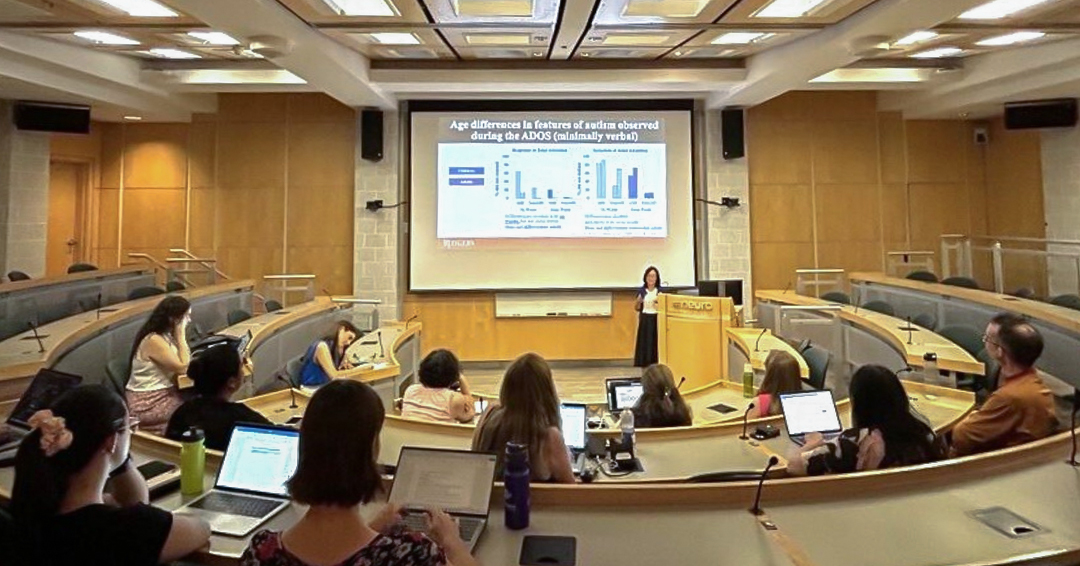
Program educates outstanding graduate students and postdoctoral fellows nationally
ACAR was established in 2017 with a $16 million gift from the Azrieli Foundation, and has focused on its mission to transform research, training, and care to improve the quality of life for autistic people and their families.
So far, 54 QART fellows from more than 15 research areas have been trained through the unique three-year fellowship program, which includes a one-year enrolment fellowship, a week-long annual summer school, a flexible training passport to maximise engagement in activities tailored to each trainee’s career development, and various other opportunities.
“The biggest benefit of this training program has been collaborating with people from so many diverse backgrounds in research,” says PhD candidate Gabriel Blanco Gomez about QART. “While my own research focuses on infants with autism, I’ve been able to intersect with people who work in areas like the microbiology of ASD. It gives me the opportunity to have a wide network of researchers and clinicians who can tackle big questions from multiple angles- this is exactly how we need to conduct research in autism.”
National expansion
Thanks to a further $4.8 million gift from the Azrieli Foundation in 2022, QART is expanding both into a national initiative to help individuals and families across the country, and to include research for all neurodevelopmental disorders, as well as autism.
Now known as the Canadian Neurodevelopmental Research Training program (CanNRT), this Canada-wide collaborative training environment supports research excellence and equitable pathways for Canadian early career researchers and trainees specializing in these areas. In the summer of 2022, 16 outstanding fellows from across Canada were accepted into the first CanNRT cohort.
“We see every day how much individuals and families with autism need support,” says Mayada Elsabbagh, PhD, Director of TACC. “The Azrieli Foundation has allowed us to make major advancements in our commitment to improving the lives of people in this community. More and better research is absolutely essential – expanding this training program across Canada is a meaningful step in our ongoing efforts, removing conventional boundaries to support the brightest young researchers in this field.”
